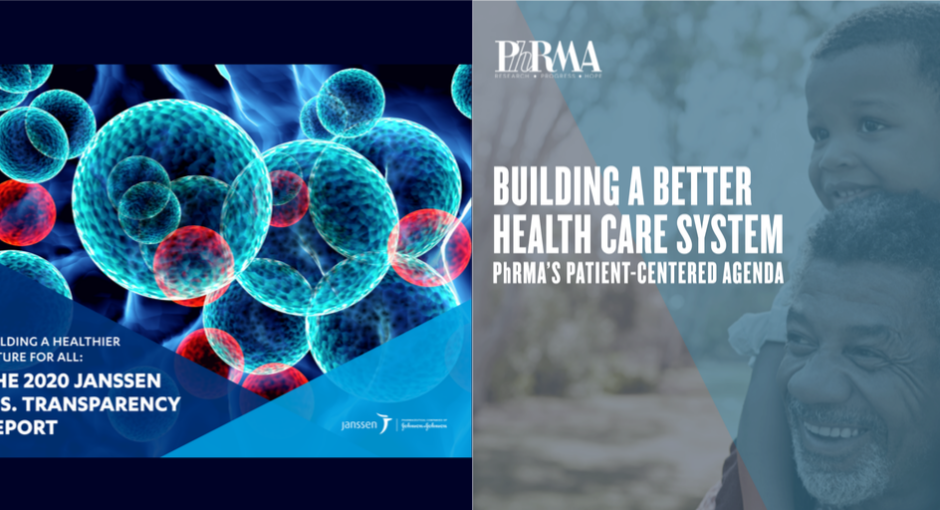New reports from pharmacy giant Janssen and Pharmaceutical Research and Manufacturers of America (PhRMA) suggest that the pharma sector could be making the 340B program an even bigger target than it has been in recent years.
Janssen’s report is about “building a healthier future for all” and PhRMA’s report is about “building a better health care system.” Both recommend taking 340B drug discounts away from hospitals and contract pharmacies and giving them to patients.
An attorney for 340B providers said the drug industry reports were about making pharma’s financial benefit bigger, not about making health care better.
Janssen’s 2020 U.S. Transparency Report, released earlier this month, said the discounts it provides to 340B covered entities have grown 2.6 times between 2016 and 2020, from $2 billion to $5.2 billion. Although that is a lower growth rate than discounts to commercial insurers and PBMs (4.2 times growth), Janssen noted that the 340B program makes up 18% of the $29.4 billion in total discounts it issued last year.
Janssen, a division of Johnson & Johnson, said its 340B discounts in 2020 averaged 66% off list price, up from 59% in 2016. It also included an illustration showing that the 340B program can reduce the cost to a 340B provider of a 30-pill bottle of the diabetes drug Invokana, from a list price of $519 to $0.30.
Janssen did not explain in the report why Invokana’s 340B price fell so low. One possible reason is the inflation penalty in the 340B ceiling price calculation, which can reduce a drug’s 340B price to a floor of $0.01 if the drug’s price, relative to its introductory price, has risen faster than inflation. According to a March 2013 New York Times article, Invokana’s introductory wholesale price was $8.77 per tablet. The data Janssen included in its report indicate that Invokana’s list price now is $17.30 per tablet—almost twice its 2013 introductory price.
“Unfortunately, the [340B] program is no longer working as intended,” Janssen said in its report. “Hospitals and other covered entities under the 340B program do not always pass along the discounted drug prices to uninsured and indigent patients. Discounts can also be diverted from patients to for-profit intermediaries in the system, such as contract pharmacies owned by large pharmacy chains or PBMs.” The Janssen report noted that contract pharmacy arrangements have grown more than 42-fold since 2010.
“We support the 340B Program but want it to work as intended—to serve needy patients,” the report said.
PhRMA took a similar swipe at 340B in its report released this week. To preserve the program, it said, “we must pursue policies that preserve 340B for patients that need it through greater oversight and transparency into the program to ensure that hospitals and other entities are using the discounts to serve needy patients and not siphoning resources away from patients. This could help put the program back on solid footing by curbing program abuses and preventing further manipulation.”
PhRMA spokesperson Nicole Longo told 340B Report that 340B reporting rules for hospitals are opaque, whereas reporting requirements for federally qualified health clinics and other grantees are more transparent.
“Manufacturers provide tens of billions of dollars in discounts every year through this program to covered entities, and specifically on the hospital side there is no way of knowing how those dollars or discounts are then being used, and if they are used to help patients,” she said.
Peggy Tighe, a principal at Powers Pyles Sutter & Verville and counsel to Ryan White Clinics for 340B Access, called the reports “another slew of coordinated attacks on the 340B program with the intention of shrinking the program.”
“It is beyond disingenuous to say that PhRMA wants to protect the 340B program by seeking to reformulate 340B into a direct patient benefit, skirting their federal statutory obligations to provide the discounts to the safety net and the communities they serve,” Tighe said.
Tighe added that “these messages are also being delivered at a time when many manufacturers are rewriting the rules of the program for their own financial benefit while hoping that the new secretary of HHS doesn’t step in to stop them.”


